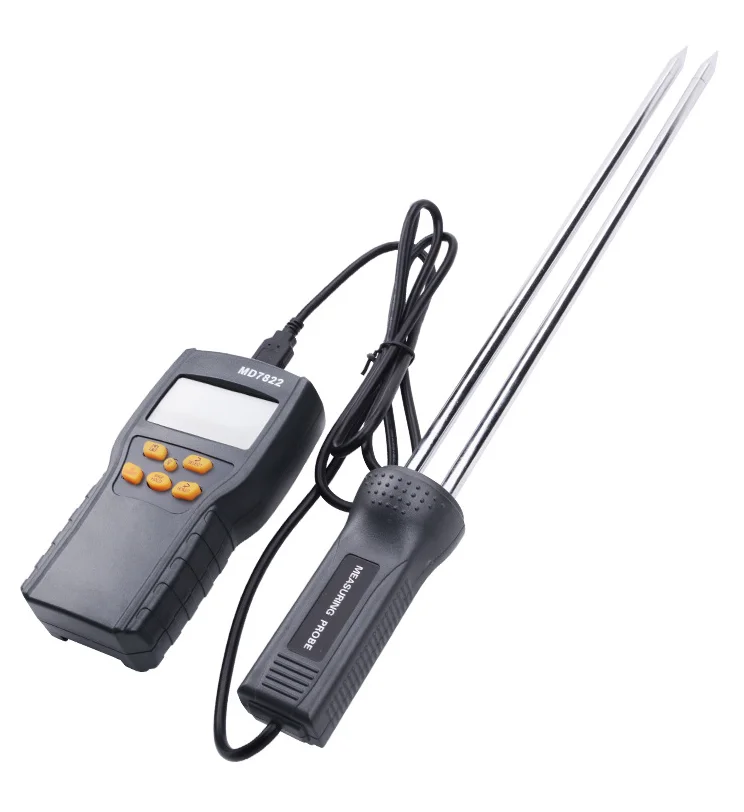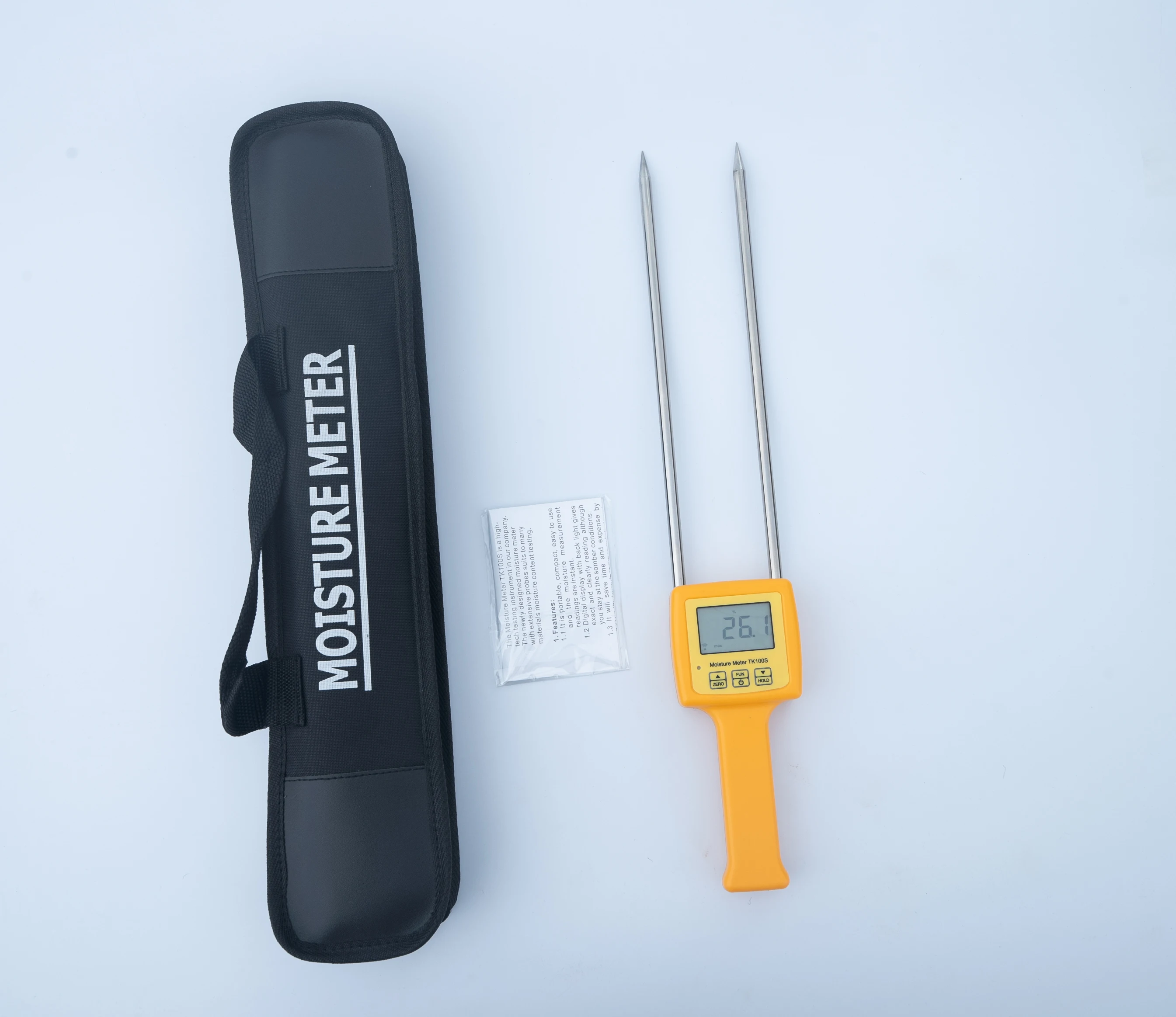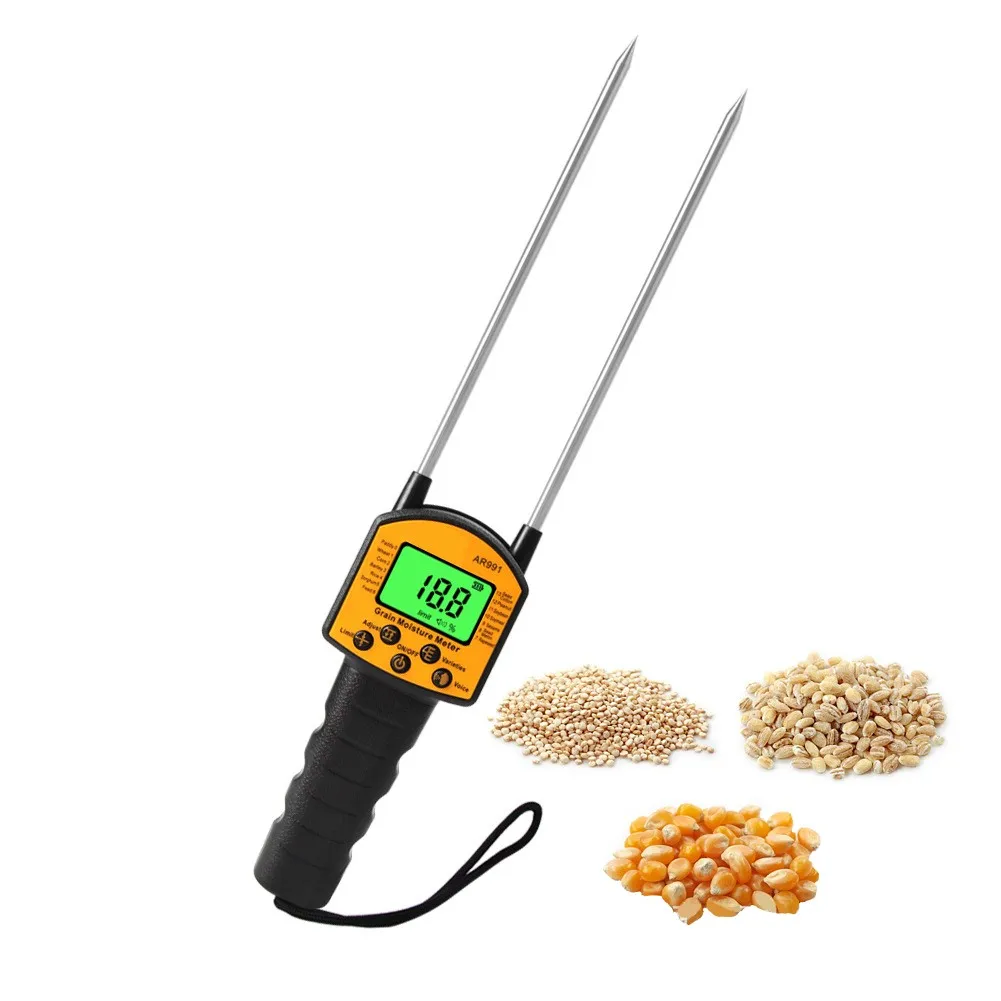Have you ever seen a moisture tester for hay? A moisture tester may sound like a tool that only grown ups would use but it's actually a really useful tool for farmers from who grow hay like we do here at AIK. So, what exactly is a moisture tester, why is it used and how can it help get our hay to its best
When we’re growing hay, we want it to be the best quality we can get. Testing the moisture content of the hay is one way to achieve this. Those readings help us understand whether the hay is too wet or too dry. If the hay is overly wet, it can spoil and develop mold. It is possible for hay to be too dry and become brittle and lose its nutritional value. Thanks to a moisture tester, we can make sure our hay is the way we like it for the animals to eat.
A moisture tester can assist us save time, work smarter on the farm. So now rather than guessing on when its ready to bale, we can test it for moisture with the moisture tester. Fortunately, this saves us time and money as we won’t have to discard any ruined hay. And, by knowing the moisture content of the hay, we can ensure that it has the correct nutrient levels for our animals." That means our animals will be healthier and happier when they consume the hay we grow
When selecting a AIK portable xrf analysis we want to choose the best one. There are a variety of different types of moisture testers out there on the market and it’s important to do a little research before buying one. We need to find a tester that is user friendly, provides accurate readings, and is robust enough to handle some of the more rugged conditions found around the farm. Reading reviews from fellow farmers can also help you determine what testers they recommend.

Benefits of Utilizing a Moisture Tester in Checking the Quality of a Hay If you have been involved in the agriculture long enough, then you know what role a AIK xrf portable metal analyzer plays in the field.

There are many advantages to testing the quality of our hay via a AIK laser metal analyzer. It not only preserves against spoilage and proper storage, but also the nutritional value for the hay. With a close eye on moisture content we can limit our practices to promote better quality hay. This allows us to grow more hay that is better for our animals and that is more environmentally sound.

Preventing spoilage and proper storage One of the toughest tasks in hay farming is to prevent spoilage. This is where a hay moisture tester is useful. We also test the moisture of our hay regularly, and store it (incurring a loss overwinter) as we know how influenced hay quality it is if stored in the wrong conditions. If the hay is too wet, we can dry it before stacking. If the hay is very dry we might add some moisture so it doesn't become brittle. The nutrients don’t leach out and we do not have nearly as much spoilage, our hay is the best quality for our animals.